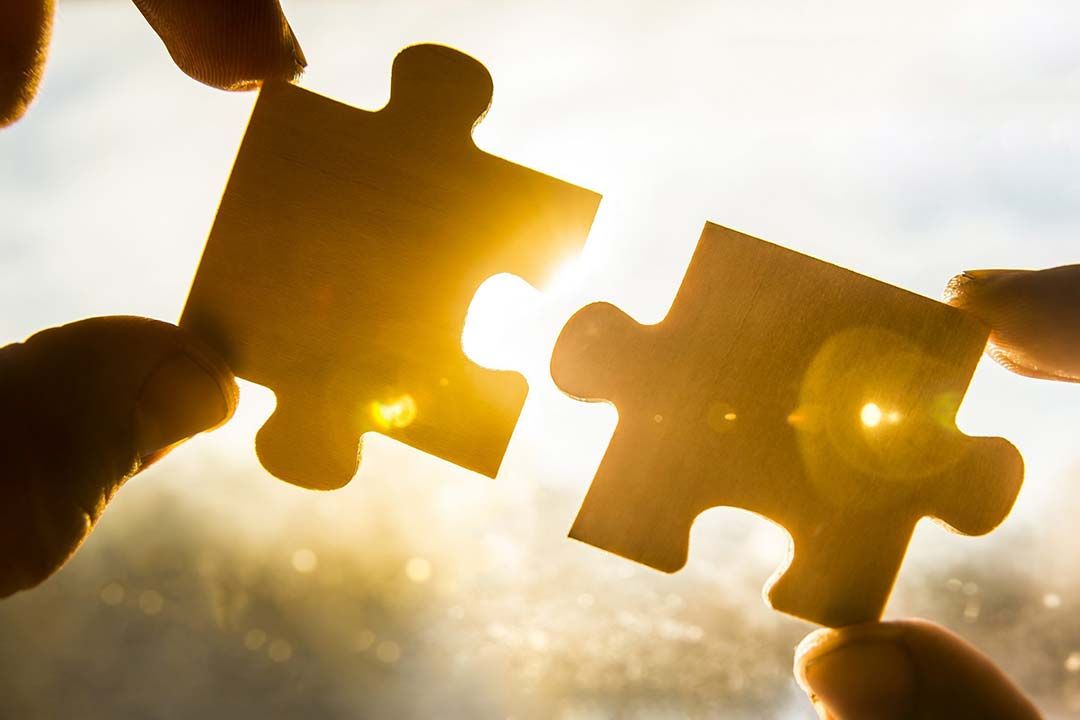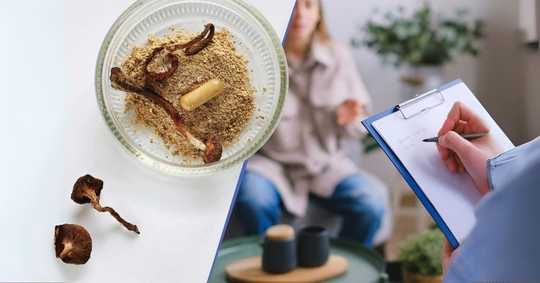What happens after psychedelics is everything. While there is a large focus today on substances and the experience of taking them, much of the healing potential these drugs offer comes through the integration of the experience afterwards. In this article, Brian Murphy, MEd, LCSW shares advice and insight into making the most of integration – whether your experience was over – or underwhelming – and generating the most healing for ourselves and our wider community.
“My own suspicion is that the universe is not only queerer than we suppose, but queerer than we can suppose.” ~ J.B.S. Haldane
Imagination Openers
Humans have been using psychedelics for at least six thousand years now, probably more. Yet in the West we come to these chemicals today as virtual newbies. We are learning, as if for the first time, how they can be used for healing and for the flowering of wisdom. While at the same time we are trying to figure out our relationship with them based on their current status as illegal drugs. This dichotomy between medicine and poison is not the best frame for integrating the benefits of psychedelics into our regular, conscious lives.
There are ways in which the psychedelics themselves do not help. Unlike say a pain killer or an antibiotic, the essence of the psychedelic experience is that it is unpredictable. This is true both in what will happen during the trip and in what your needs will be after psychedelics. The trip may weave from the exhilarating, revelatory, and awesome in its original sense. Alternatively, it could lead to terrifying, totally uncanny, or to a bit of a let-down. So, the task afterwards needs to be scaled to any of these outcomes. For that matter, the task after psychedelics needs to apply to any combination of them, since all elements can happen in one journey.
Despite this, the time after the medicine is a great opportunity to deepen the healing and to help the experience continue to marinate inside you. Psychedelics are imagination openers. They take us into uncharted realms, so that our inside life becomes the reality for a brief spell, rather than the exterior world. Once we return to regular consciousness, it’s clear that the imaginal realm does not cease to exist, any more than the stars are no longer there because it’s daytime. With integration, it is possible to plunge into that imaginal realm and re-visit the trip long after the chemistry has worn off. Here, then, are some things to do for yourself after you return from Dimension Nine and Three Quarters.
Psychedelics are imagination openers. They take us into uncharted realms, so that our inside life becomes the reality for a brief spell, rather than the exterior world.
Take Time to Yourself After Psychedelics
Unless that was your boss madly tripping beside you, it may be a big ask for more time off from work after your actual experience is over. BUT, if you can figure out a way to tack on an afternoon, a day, or a couple of days, it would help. The time needed depends on the intensity of your journey, as it would be useful to give yourself some low key time for reflection and recovery. Your ego might appreciate a pause. Meanwhile new structures and new understandings settle in and find a place to take up lodgings.
After psychedelics is also a time for grounding. Let’s say your brain just took in a huge download of information about you and the world. It might be useful to sip tea, stare out the window, and take time to absorb it all. It is also possible that you may have some serious resetting of life goals to contemplate.
For instance, let’s say you have just discovered that “all you do need is to love,” really is true. Then how does that jibe with your wish to become the next Jeff Bezos? Or, you now understand we are all one being in this great universe. Does that have any impact on the way you treat your eternally annoying roommate? Plenty to reflect on while you are sipping that tea. However, this is not the time to make irreversible decisions or dramatic changes. Let things seep in a while before you consider taking any big actions. It would be embarrassing to have to go to your boss and ask for that job back.
Write it Down
People who work as “sitters” for psychedelic journeyers sometimes write down all the things the journeying person says during their trip. That can be really useful. Since it’s no fun to have amazing experiences and stunning insights on trippy Tuesday, only to be wondering what exactly they were by Thursday afternoon. If you do not have someone to do that for you, be your own scribe and write down what you remember as soon as you can.
Keep in mind that memories are a reconstruction. They do not sit there like a database in a computer, waiting for retrieval. They need to be re-run periodically in order to remain retrievable. This means that either you don’t bring your trip to mind and it eventually fades like last night’s dream. Or, you rehearse it over and over, and the script subtly changes with each replay. It is a bit like making a copy of a copy of a copy on an organic copy machine that’s flawed by its own prejudices and confirmation bias.
So, the earliest possible record of your psychedelic adventures will render a more accurate version of your journey through all of its varied dimensions. Personally, speaking with people after their trips amazes me sometimes. They’ll say “Oh, I just now remembered this bit,” and it was a huge and significant piece of the whole journey.
Once you write it down, it will be there for years to come. If you want to do further inner work or just take a wander down memory lane you can return to it. One thing I recommend is to record just the straight facts. If you want to interpret it or ponder on its meaning, do that a different time. Bob Dylan made this point when he bluntly said:
At dawn my lover comes to me and tells me of her dreams. With no attempt to shovel the glimpse into the ditch of what each one means.
There is indeed a danger that regular consciousness will inadvertently try to domesticate the experience and treat it as a puzzle that needs a solution. I think it’s better to treat the memory like a piece of artwork. Something that’s precious to be held, appreciated, and seen from different angles.
Integrate the Experience After Psychedelics
You can choose to work with an integration therapist, some other kind of helper, or take your own DIY approach. Regardless, the task of integration is to keep the psychedelic experience alive inside you, so it can assist you in the process of change. Maybe that change is directly related to an intention you set as you prepared to take the medicine. Let’s say you wanted to lift a depression or control a bad habit. Thus the task after the medicine is to keep the impulse of that intention moving along and perhaps expand it. Maybe the experience gave you something entirely new to think over. In this case, the task may be more about retaining and developing the new information or perspective. Finally, consider what kind of personal practice will support that effort. Meditation, ongoing therapy, or focused body work make good options.
But first, what gets integrated into what in post-psychedelic processing? What happens when the mystery of the experience faces the mystery of me? Sometimes after taking psychedelics, our regular mind wants to “make sense” of what just happened. It does this by rendering the experience back into familiar day-to-day terms. Or, we simply lack an appropriate framework for the experience. The nature of psychedelics is to question our common-sense world view and cast doubt over its apparent solidity. Creating a new framework that can honor the perspective shift of psychedelics can help us reach a state of greater internal integrity. This is a condition of increased internal organization and consistency. As this is happening, self-limiting core beliefs and assumptions may have to disintegrate under the pressure of the new level of organization.
Nothing is more varied than psychedelic experiences. They range from blissful visions to terrifying horror rides to experiences that are not so special. Also, they might just be hard to remember. So here are some thoughts about the integration tasks with the good, the bad, and the… disappointing.
I had a wonderful time. How do I keep a hold of it?
Once you have been to the gates of paradise, it is hard to believe that you will ever fall back into the daily grind and be your same old business-as-usual self. But that’s exactly what can happen. One way of looking at this process is through the lens of neuroscience. A basic principle of neuroscience is that repeating thought patterns establish themselves more deeply. Meanwhile, neglecting thought pattern neural pathways become eventual targets for pruning. If you want to preserve, or even deepen, your connection with the uniqueness of the experience, you have to re-visit it often. You cannot let it become a sort of post card memory that you leave in the back of your mental chest of drawers.
Here is one way to do that.
- Close your eyes.
- Notice your breath.
- Summon up the image of your choice that feels meaningful or magical from your journey.
- Connect with that feeling or image as best you can.
- Try not to judge yourself while you are doing this. Even moving towards that energy lets some of it seep into you.
- See if it is possible for you to interact with this image, so you can send it positive feelings and connection.
- See if any part of it responds by communicating back to you.
- Sometimes an ongoing relationship develops between your ego self and the figures in your trip, and what follows is an example of that.
Ellen had taken a psychedelic as part of her efforts to combat crippling depression, anxiety, and phobias. During her journey, she felt a female presence protecting her. She called this presence her spirit guide while it floated around the light fixture above her bed. In a very literal way, her spirit guide oversaw the whole experience. Her guide checked in with Ellen periodically to see if the intensity level was okay. Why? Because Ellen was re-experiencing various episodes from her life. Towards the end, her spirit guide instructed her to continue to “do the work.”
“Peace is here, and peace is present. It pulls in conflict, it pulls in ego, and embraces them. When you are coming from peace, vision and judgment are not impaired.”
After the psychedelic journey was over, Ellen’s depression was much, much better. But her anxiety and phobias were still going strong. When she came to me for integration, I suggested that she might reconnect with her spirit guide as a support in her work with anxiety. Ellen got very quiet, and slowed her breath. Ellen invited the spirit guide to appear in her mind’s eye. Spirit guide appeared and brought Ellen to an African village. There a group of women were sitting in a circle, weaving cloth. Ellen drank in the peace and calm of the scene. She could feel that the women were not just weaving cloth, they were weaving themselves together into community. Furthermore, they were weaving ever-stronger connections with their ancestors. Sometimes Ellen felt them weaving circles inside her own body too.
After several sessions of watching the women weaving, Ellen was able to invite herself into that circle. Once there, the women accepted and embraced Ellen. Spirit guide said, “Avoiding conflict is not the point. Sit with it.” She continued, “Peace is here, and peace is present. It pulls in conflict, it pulls in ego, and embraces them. When you are coming from peace, vision and judgment are not impaired.”
This magical circle of women was the exact counterweight that Ellen’s fears and anxieties needed. She reconnected with the core of love and belonging that the psychedelic had shown her. But, now it was becoming part of her daily life in a more sustainable way. After this work, Ellen’s new-found confidence and “exploding happiness” dislodged her anxieties and phobias from her life’s steering wheel. This is not to say they magically went away. However, an inner life, once populated mainly by fear and pain, grew to include spirit guide. Her inner life also embraced a number of other healing figures who could be called upon as resources during difficult days and moods. The psychedelic and the work afterwards dovetailed into one healing process.
This particular kind of work with a therapist is not the only way to reconnect. Making art, journaling, meditating, or any other activity that speaks to you may accomplish this. Just make sure it relates back to the psychedelic journey. Maybe it is a walk among trees. Whatever it is that cracks open a window into the beyond for you. Psychedelics are incredibly useful tools. Although, on their own, you cannot just ‘ayahuasca’ or ‘psilocybin’ your way to wholeness. It is the ‘work’ of self-acceptance and engaging with the imagination that gets us farther down that road.
The experience I had was terrifying and it left me ungrounded. How do I get over it?
Though it may not seem so at the time, a bad trip is something hard to define. It can be like a birth. Think painful, even agonizing, yet resplendent and powerful in the end. Or it can be a shitshow you would like do without. People often say that if the set and setting are good, you are unlikely to have a bad experience. Here is what this approach means. All should go well if you have a positive mindset while in a safe, uplifting and non-judgmental location. But Norman Zinberg, the person who coined that phrase, actually put it as drug, set and setting. You can control the set and setting as much as you like. But once you dose more/higher than was right for you that day, a rough ride may await you.
What if the trip experience is way beyond your window of tolerance? Then you may need to say no to it and wait it out until it’s over. Because we can only stretch so far. This does not mean that someone who had a bad trip or a weird trip is less evolved than someone who was blissed out. It just means that the drug effect, the spirit of the plants, etc, hit the person’s sensitivities harshly. Instead of mystic caves or ornate palaces, the content of your experience may become great suffering. That is not your fault.
What to do after psychedelics have hit you hard? Sometimes our sense of reality and our very sense of self has taken a good bruising. Thus, it is good to keep it simple. Be gentle with yourself. Do the activities that you personally find most grounding. Whether that is walking by a pond (if you have one), being with friends or family, listening to music, or even plunging back into work. Do whatever it is that brings you back down to earth. Have faith in your own resilience. Cultivate those old neural pathways that lead to the world you know well. Time is indeed a healer. Lastly, the repetition of old habitual ways may not immediately end. But proper integration over time may eventually help distance you from the cosmic wringer you have just been through.
Bad trips can contain invaluable lessons, and even though they are purchased at a high price, that is probably as it should be.
A person I worked with on this issue came back from a psychedelic journey with a clear conviction. The conviction was that the things of this world were not the primary reality. Furthermore, entities in another dimension had been very mad at her for coming back to earth and not staying up in the cosmos with them. It had been scary enough to be that far out there. But once it was over, there was not much respite. Her perception that her family, her job, her entire world, as part of an elaborate fake caused this. It was a genuine existential crisis.
I don’t believe integration therapy helped her figure out anything she did not already know. Nor did it give her any new insights. But there was real value for her in having someone who did 2 vital things. First, I didn’t see her as a little unhinged or anything close. Secondly, I took her post-psychedelic journey seriously as she returned from this brush with the ineffable. Time passed, and as she gained distance from the experience, she was able to make an executive decision. What was it? That this world, provisional as its reality might seem, was where she wanted to invest her identity.
The family she loved and the job she treasured were home base to her. The space aliens, super-smart and hyper-real as they might be, were not. She did a kind of renewal of marriage vows with life. Gradually her love and compassion for the things of this plane settled in more deeply. Almost two years later she went back to psychedelics. This time she encountered joy and well-being. She could at last experience a sense of a firm connection to both worlds.
Bad trips can contain invaluable lessons, even though they are purchased at a high price. Although, that is probably as it should be. This “badness” may include our own shadow material: greed, rage, terror, and fear. It may also include ancestral darkness. In other words, the cruelty that humanity has enacted on itself and has suffered throughout the ages. There may also be elements that seem non-human altogether. This may include exposure to spirit beings that are not exactly angels, but are certainly more powerful than we are. It is on us to incorporate these experiences that are on the margins of the imaginable and to find what value they may have for our flesh and blood selves.
Another person I worked with had an interesting experience. During his ayahuasca journey, he had lost all sense of who he was and where he was, or even that he had taken the medicine. People advised him to open his eyes to come back to the room and to remember to breathe. Alas, those suggestions were not much use when he did not know he had eyes or lungs. This was a zone of enormous terror and hardship. He would have to pass through before reaching the beautiful places, where the joy and the learning were located.
By preparing in advance, and especially by modulating the dose, he found that he could, in fact, work with this state. As he breathed in, his fears would gather and the terror would grow. Then as he breathed out, he could now relax into a place of intense peace. And so it went for him, see-sawing between Heaven and Hell, slowly learning that it was his mindset that determined where he would land.
The work he did translated back into regular life. He saw that in and of themselves, most events were only good or bad by the way he thought about them. By adjusting his thinking, he could adjust his mood. Take trash being blown down the street for example. Maybe it’s disgusting garbage that irresponsible slackers have mindlessly tossed away. On the other hand, maybe it’s a fascinating display of how air moves light objects forward in little whirlwinds and eddies. Thus, what was formerly “bad” transforms to delight the mind.
Frankly, my experience was a bit blah. I had been hoping for so much more.
Doing psychedelics is doing heart research. But it’s really galling when other people in your circle are turning into pumas, chatting with star people and “letting go” to their ego deaths. Meanwhile, all you got was to throw up into an oddly sparkling bucket. What is the “underachieving” psychonaut to do?
Doing psychedelics is doing heart research.
Begin by cutting yourself a break! There’s a lot of psychedelic hype these days. Whether it’s dramatic improvements in mental health, losing all fear of death, or having the biggest spiritual experience of your life. You can feel bad about yourself when you did not have the blockbuster event you hoped for, or were sold. It is easy to feel a lot of psychedelic shame over this. Psychedelic shame can be just as debilitating as any other kind of shame that we social creatures are subject to. Also, remember that some people will meditate for twenty years or more, in hopes that they can one day let go of that same old ego for just a few seconds or maybe a minute or two.
It is easy to feel a lot of psychedelic shame over this. Psychedelic shame can be just as debilitating as any other kind of shame that we social creatures are subject to.
After psychedelics the value of the experience is not to be measured by how dramatic it was or whether your expectations were met. Rather, by how much of a kinder, wiser, more thoughtful person you turn out to be afterwards. What if you have a magnificent ego death then do not stay the least bit ego-dead? What has been achieved? If you went into a fear state and held on tight, the process may still have whittled away some of your ill-founded world view and core beliefs. Maybe this ‘second best’ experience was more useful than the spectacular one. Maybe you are slowly transforming yourself in one way and that other person is slowly transforming another way?
The value of a psychedelic experience is not to be measured by how dramatic it was or whether your expectations were met, but by how much of a kinder, wiser, more thoughtful person you turn out to be afterwards.
And the issue of expectations. Sometimes they can really get in your way. Let’s say I went into the medicine with all kinds of hopes and expectations. Yet, after hours of chaotic images and pretty lights, I finally sat in a fluffy golden sunset for a few minutes. Then I was basically done. I could dismiss that experience as a dud. But I could also take time later on to re-visualize the fluffy sunset in my imagination and re-enter it.
It is possible that it contained a close encounter with my true self. If I can return there in my mind’s eye, I might get more of a taste of that comfortable, peaceful, deeply-okay place. What values and feelings were present with me there? To what regular life situations can I bring these feelings and values? Can I use them as a resource towards being more authentic and showing up for life more directly? Before I write my trip off as a bust, I can take a more careful look at what went on. There may be some gems under the rocks after all. Great wisdom and insight can come after psychedelics, especially when we make integration as therapeutic as possible.
A Wider Perspective After Psychedelics
Some of us come to psychedelics to expiate the ghosts of deep, lifelong wounds. Some of us come to take a journey into the unknown. That unknown will always be more profoundly unknown than we can imagine. Behind those personal ghosts will loom older ones, from our collective legacy of wars, oppression, poverty, meanness and forsaken potential. “A dog starved at its master’s gate predicts the ruin of the state,” said William Blake. Above all, there is much petting and feeding of ancient starved animals to be done. We have the resources for that task too. For in that same ancestral legacy lives the kindness, courage, and profound sense of how we belong to each other. We are the receptacles and generators of gigantic love.
We are the receptacles and generators of gigantic love.
The main value of psychedelics is not that they may become the next psychiatric magic bullet. Nor that they might open our minds to vast, spiritual domains. As I understand it, the goal of the psychedelic exercise is that we will become kinder and more thoughtful people. More responsible for and responsive to the world around us, with joy and human connection on the front burner, instead of personal aggrandizement. After psychedelics, we don’t just get better for ourselves, we get better for all of us.






